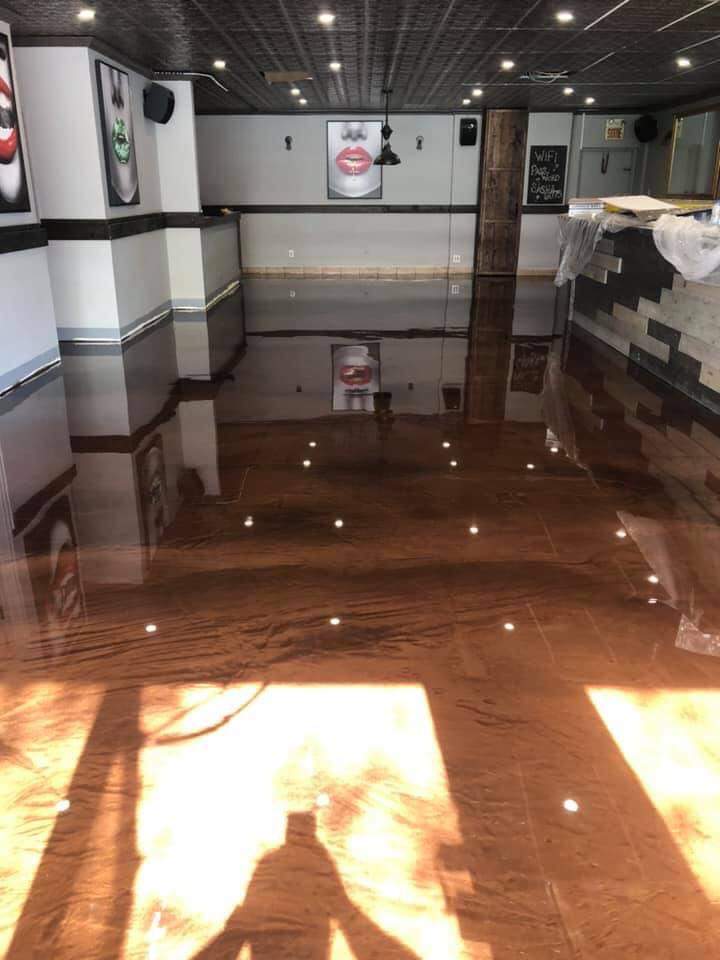How Commercial Floor Coatings Contribute to Healthier Indoor Air Quality in Workplaces

Maintaining a healthy workplace environment is more important than ever for businesses seeking to ensure the well-being of their employees and customers. One often overlooked but highly effective way to improve indoor air quality is through commercial floor coatings. These coatings are key in fostering healthier indoor environments by improving the strength and aesthetics of floors.
At Decorative Epoxy Experts LLC, we provide premium commercial concrete floor coatings designed to meet the highest safety, hygiene, and aesthetic standards. These coatings contribute to better air quality in workplaces.
Dust Control for a Cleaner Environment
Uncoated concrete floors can generate fine dust particles contributing to indoor air pollution. Over time, wear and tear on untreated floors can exacerbate this problem, leading to respiratory issues for employees.
By applying commercial concrete floor coatings, the porous surface of the concrete is sealed, preventing dust from forming and dispersing into the air. This significantly reduces airborne particles, creating a cleaner, healthier atmosphere.
Improved Resistance to Mold and Bacteria
Epoxy and polyaspartic coatings create a seamless, non-porous surface that resists moisture penetration, making it difficult for mold and bacteria to grow. This is particularly helpful for industries like healthcare, food service, and manufacturing, where maintaining hygiene is crucial.
Low VOC Options for Minimal Emissions
Decorative Epoxy Experts LLC offers low-VOC and zero-VOC commercial floor coatings, prioritizing air quality. These environmentally friendly options ensure that workplaces remain safe and healthy during and after installation.
Ease of Cleaning for Reduced Chemical Use
This benefit is particularly valuable in spaces that require frequent cleaning, such as schools, retail stores, and industrial facilities.
Durability That Minimizes Airborne Particles
Commercial concrete floor coatings offer exceptional durability and resilience, maintaining their integrity even in high-traffic areas. By preventing the breakdown of flooring materials, these coatings help minimize the presence of airborne particulates, keeping the air cleaner for longer.

What Are the Strategies to Maintain and Improve Indoor Air Quality?
- Keep Your Home Clean: Vacuum carpets regularly, dust surfaces, and wash bedding to reduce allergens like dust mites, pet dander, and mold spores.
- Use Air Purifiers: Use air purifiers with HEPA filters to help eliminate airborne particles and boost the overall air quality.
- Ventilate Your Home: Open windows when weather allows or use exhaust fans to let fresh air in and push stale air out.
- Control Humidity: Keep indoor humidity between 30% and 50% by using a dehumidifier, which will help stop mold and mildew from growing.
- Choose Low-VOC Products: To reduce harmful chemicals in the air, opt for paints, cleaning supplies, and furniture labeled “low-VOC.”
- Change HVAC Filters: For clean air circulation, replace the filters in your heating and cooling system every 1 to 3 months.
- Avoid Smoking Indoors: Keep your home smoke-free to avoid introducing harmful toxins into the air.
- Check for Air Leaks: Seal cracks around windows and doors to prevent outdoor pollutants from entering your home.
- Add Indoor Plants: Certain plants, like peace lilies or spiders, can naturally help filter the air.

